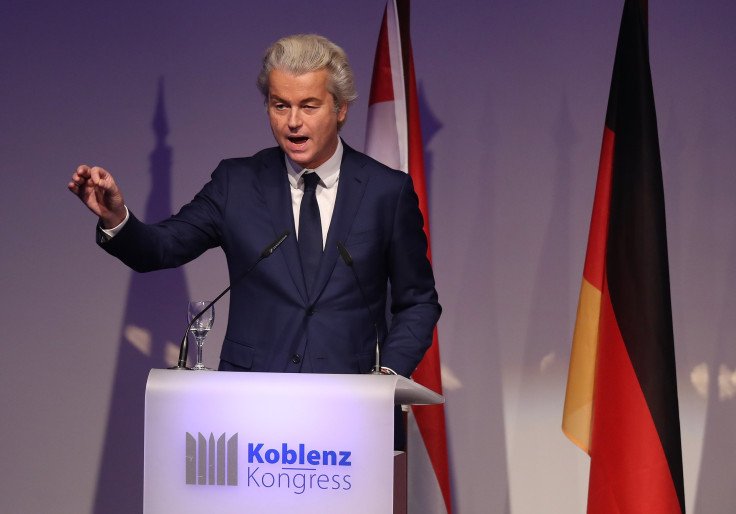Dutch Election 2017 Polls, Odds, Date: Anti-Islam Candidate Geert Wilders Frontrunner As Campaign In Netherlands Begins

Campaigning began in the Netherlands Wednesday ahead of an election set to provide the first clues as to whether the popular uprisings that occurred across Europe and the United States last year will continue into 2017. Ahead of the March 15 parliamentary vote, far-right anti-Islam candidate Geert Wilders — who has called the election the start of a European “Patriotic Spring” — continued to sit out front in the polls.
While it gained just 10 percent of the vote in the 2012 election, Wilders’ Party for Freedom (PVV) has led the opinion polls for much of the past 18 months.
Wilders wants the Netherlands to follow the United Kingdom’s lead in leaving the European Union, and he has built his bid to be prime minister around anti-immigrant rhetoric. Much of that has focused on Islam, an ideology he said was “possibly more dangerous” than Nazism in an interview this past weekend. He has also previously called for ownership of the Quran, a text he has said is more anti-Semitic than Adolf Hitler’s “Mein Kampf,” to be banned and all mosques to be shut.
Wilders’ popularity has not suffered despite being convicted of inciting discrimination last December after he led a crowd in a chant demanding fewer Moroccans in the country.
Recent polls have shown Wilders’ party to have a three-point lead over the conservative Party of Freedom and Democracy of current Prime Minister Mark Rutte. As the official campaign began Wednesday, the two men announced that they would face off in a televised debate two days before the election.But Wilders still faces an uphill battle in becoming prime minister. The Dutch system means a majority is needed to govern, almost always ensuring that a coalition is required. All but one of the 31 parties competing for votes has ruled out working with Wilders. Even if Wilders’ party finishes first in the vote, Rutte could still hang onto power by forming an anti-Wilders coalition.
Dutch Election Odds for Most Seats (provided by Paddy Power)
PVV (Geert Wilders) — 1/6
VVD (Mark Rutte) — 16/5
CDA (Sybrand can Haersma Buma) — 33/1
PvdA (Diederik Samsom) — 66/1
© Copyright IBTimes 2024. All rights reserved.











